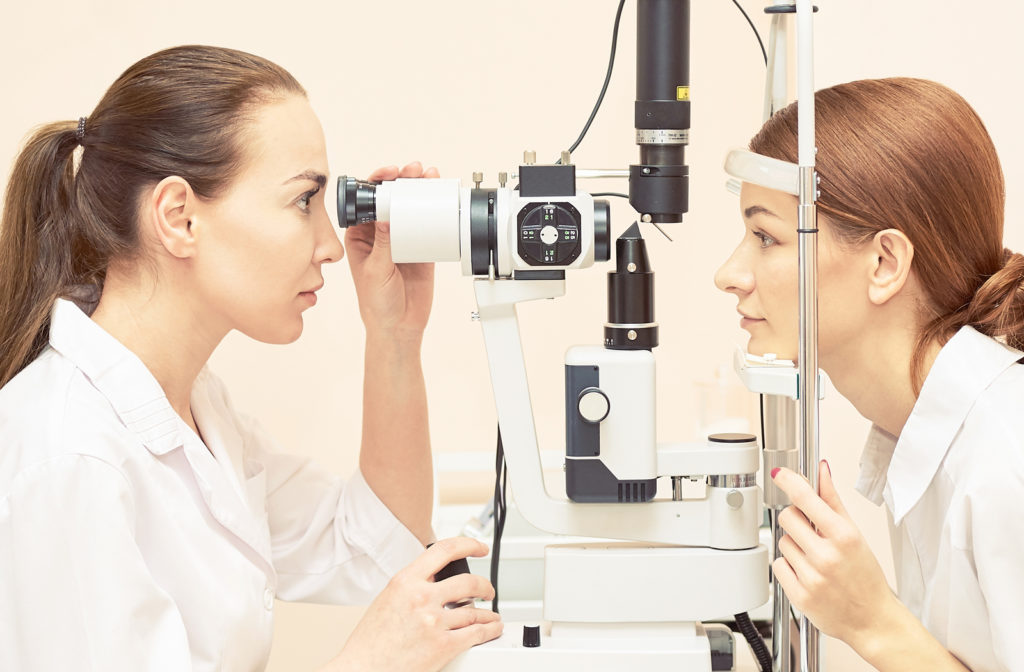Individuals who experience problems with their vision, such as blurriness, or reading should visit an eye specialist. If someone ignores the problem with their vision can suffer from recurrent episodes of headache and worsen the symptoms. It can hinder everyday activities and cause distress. Therefore, it is essential to contact the specialist for diagnosis and opt for the best treatment. Individuals who want to consult a competent and reliable eye specialist should book their appointment through oladoc.com.
Table of Contents
What Is Age-Related Farsightedness/Presbyopia?
Age-related farsightedness is commonly known as presbyopia. The condition refers to progressive loss of the ability to focus on close objects due to aging. People above fifty are more likely to suffer from presbyopia.
What Symptoms Indicate That The Person Is Suffering From Age-Related Farsightedness?
The signs and symptoms of presbyopia are:
- The person can notice that they are unable to focus on the objects nearby.
- The vision becomes blurry
- The person suffering from presbyopia has recurrent episodes of headaches after reading.
- The person feels the strain on the eyes after doing everyday chores.
- The person remains fatigued after completing activities such as sewing.
- The person cannot read words in small fonts and requires bright light for reading and writing.
- The person constantly blinks to focus on the objects nearby.
What Are The Known Causes Of The Condition?
The causes of presbyopia include:
- People above the age of forty-five are more likely to have hardened lenses that can cause vision-related problems.
- Due to less flexibility in the eye muscles, the person is more likely to suffer from the condition.
- Less elasticity in the eye lens correlates with age-related farsightedness.
What Factors Increase The Likelihood Of Age-Related Farsightedness?
The factors that may contribute to the development of the condition include:
- Individuals suffering from anemia are more likely to have eye-related problems after the age of forty-five.
- People diagnosed with multiple sclerosis have compromised immune systems that may cause age-related farsightedness.
- Myasthenia gravis is a neuromuscular disorder that impacts the functioning of nerves and muscles. It can cause less flexibility in the eye muscles.
- Patients with cardiovascular disease and diabetes are prone to have progressive vision loss.
What Are The Complications Correlated To Age-Related Farsightedness?
The complications of age-related farsightedness/presbyopia are:
- The person cannot function adequately in various aspects of life and may require assistance for basic tasks.
- The person cannot read or drive and may require a caregiver for these purposes.
- The productivity of the patient decreases. It can make the person anxious, which leads to severe mental illnesses.
- If untreated, the person may suffer from migraines.
How Can One Prevent The Occurrence Of Presbyopia?

The condition is associated with aging, and it might be impossible to prevent the occurrence and development of presbyopia. However, the people should:
- Use good lighting while sewing and reading.
- Wear sunglasses outdoor.
- Visit an eye specialist if they notice any change in their vision.
What Tests Help In Diagnosing The Condition?
The tests that help in diagnosing include:
- An ophthalmoscopy test helps check any abnormality at the back of the eye.
- Muscle Integrity tests evaluate the functioning of eye muscles.
- A slit lamp test helps identify any changes in the anterior part of the eyes.
- A visual acuity test helps identify the clarity of the vision.
What Are The Effective Treatment Options For Presbyopia?
The treatment options include:
- LASIK or LASEK to improve and correct the vision.
- Implantation of the intraocular lens.
- Corneal inlay implantation to help with the focus on near objects.
People diagnosed with presbyopia should consider visiting an eye specialist in Islamabad. The guidance regarding effective treatment would allow the person to function adequately and enhance their lifestyle. It will promote physical and psychological health, and the person will remain proactive with a sense of contentment.


![[7 Cannabis Industry Trends to Watch For]](https://imageio.forbes.com/specials-images/imageserve/621df37bbe32559a3fd5d84a/Obama-Admin--Unveils-New-Policy-Easing-Medical-Marijuana-Prosecutions/960x0.jpg?fit=bounds&format=jpg&width=960)
